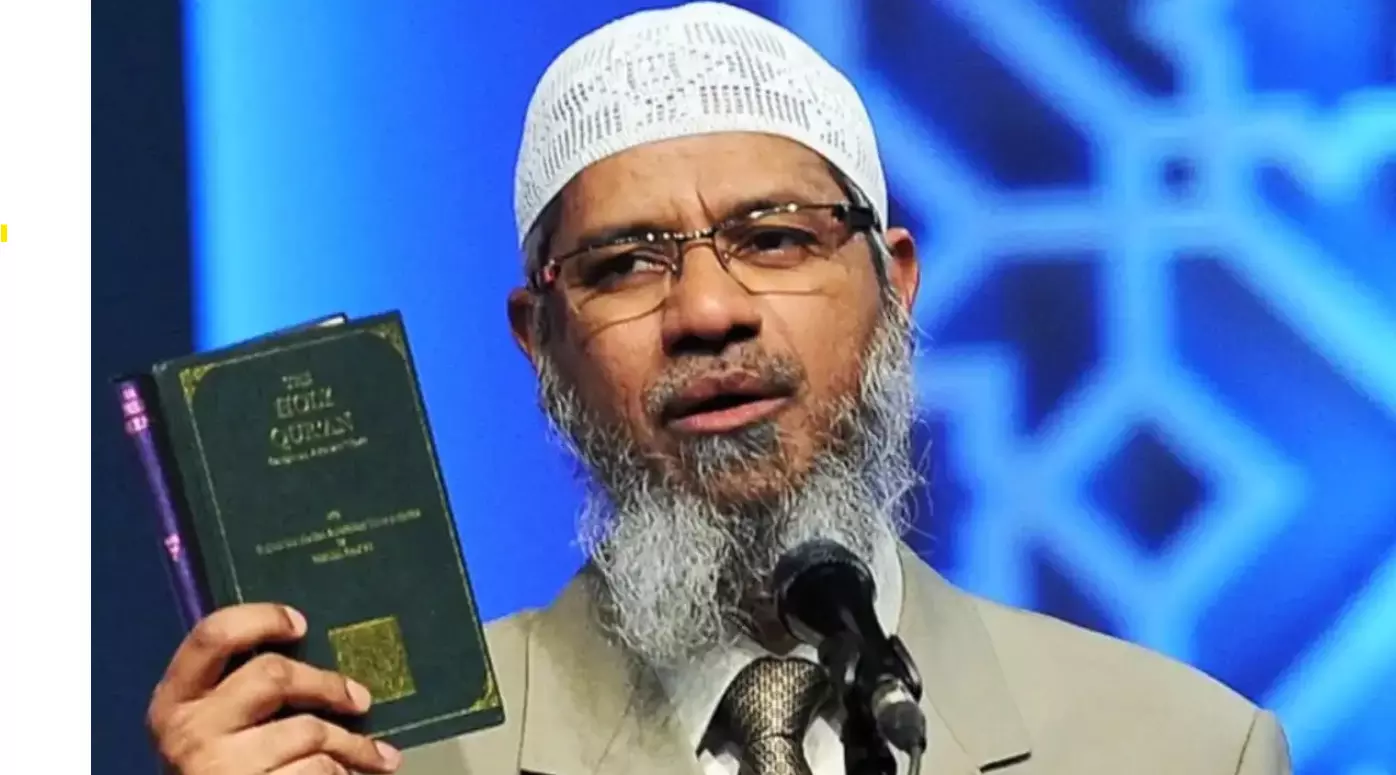Seeds of strife
Pakistan's failure to control religious extremism, state-sponsored radicalism, and military interference has worsened its social and political instability, which is further enhanced by state patronage of fundamentalist preachers like Zakir Naik

Ever since Pakistan came into being 77 years ago, it has failed to rein in religious extremism, military interference, and other ills of its own making. No meaningful efforts have been visible that suggest the government, as part of its governance, is serious about keeping religious fundamentalism in check.
History shows no evidence that any ruler in Pakistan has refrained from furthering the cause of radical Islam. In fact, there has often been state patronage in the growth of fundamentalism. General Zia-ul-Haq, who ruled Pakistan with an iron fist from 1977 to 1988, made no effort to check the spiralling growth of religious extremism. On the contrary, he actively pressed the button of regression, and we all know what followed. Religious intolerance took root in Pakistan, sowing the seeds for the emergence of multiple terror groups, including Lashkar-e-Taiba (LeT), Jaish-e-Mohammed (JeM), Tehreek-e-Labbaik Pakistan (TLP), and many more. Religious intolerance flourished, and home-grown terror groups were increasingly reinforced. These groups were conveniently appropriated to foment terror in India, targeting Kashmir and other critical installations. They became unbridled and soon operated as a state within the state. The Financial Action Task Force (FATF) made some attempts to control terror financing, but on the ground, it is extremely difficult to rein in these ultra-outfits due to direct government support in financing, training, logistics, and other spheres.
This long preface is necessary to put things in perspective, as recently, hate preacher and one of the most radical hardliners, Zakir Naik, visited Pakistan. A country long consumed by religious radicalism sponsored Naik’s visit and rolled out the red carpet for a fugitive wanted in India on several charges, currently sheltered in Malaysia. Upon his arrival, Naik explained why he chose to stay in Malaysia, though his first choice of refuge was Pakistan. According to him, Pakistan is the only country founded on the true principles of Islam. However, he avoided seeking refuge in Pakistan to prevent being branded as an Inter-Services Intelligence (ISI) agent. These utterances show his natural love for Pakistan.
Now, let us examine the importance this hate preacher received from Pakistan’s current leadership. None other than Prime Minister Shehbaz Sharif praised Zakir Naik in glowing terms, recalling their first meeting in 2006. He even stated that he personally benefited from Naik’s teachings and rhetoric. It is perhaps unthinkable that a democratically elected Prime Minister would be so submissive to a religious preacher, glaringly mixing religion with politics. And it doesn’t end there. Zakir Naik was the chief guest at a function where he addressed a gathering at the Sindh Governor's house in Karachi on October 5. If this isn't state support, then what is it? He was also met by Speaker of the National Assembly Ayaz Sadiq and nearly all the top dignitaries.
Judging by these factors, one cannot expect Pakistan to break free from the profound spell of religious fundamentalism. While religion may serve to instil discipline, morality, and a code of conduct in one’s faith, embracing extremism in its tenets is likely to heighten intolerance—a fact repeatedly proven by history.
Pakistan is already notorious for its excesses against religious minorities, including Ahmadis, Shias, Hindus, Sikhs, Christians, and others. Blasphemy laws have taken a heavy toll in terms of innocent lives. Zakir Naik’s hate speeches during his extended stay in Pakistan and his addresses in Islamabad, Lahore, and Karachi are expected to further entrench religious extremism in a country already driven by religion, steeped in medievalism and regression, which could ultimately foster more terrorism. Unfortunately, the political class seems either unable to comprehend this or deliberately oblivious to their surroundings, which is perilous. While the world is uniting against terrorism, Pakistan appears to be absorbing more religion-inspired "teachings" that are detrimental to a healthy society. Sadly, no sane voices seem to emerge in the country to counter the irrational religious tide fuelled by Naik's endless speeches. He is further emboldened by the "royal" treatment extended to him.
It would not be out of context to note that just a couple of weeks ago, in Kurram, Pakistan experienced deadly clashes between Shias and Sunnis, claiming several lives. All such killings were avoidable. Sectarian violence, fuelled by religious prejudice, occurs intermittently. In his speeches, Zakir Naik subtly adds fuel to the fire, stoking further religious intolerance. Instead, he could have used his platform to call for peace and harmony—but that seems a distant and wishful hope.
Currently, Pakistan is politically fragile, with Pakistan Tehreek-e-Insaf (PTI) resorting to agitations demanding Imran Khan’s release and the withdrawal of cases against him, leading to violence on the streets. Baluchistan is ablaze with sporadic encounters with security forces as signs of separatism persist. Meanwhile, the economy and Pakistan’s international image continue to suffer. Under these circumstances, wouldn’t it be more advisable to put the house in order than pandering to hate preachers who are spreading vicious divisive thoughts and communalism?
The writer is a retired IPS officer, Adviser NatStrat, and a former National Security Advisor in Mauritius. Views expressed are personal



